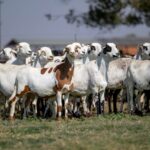Animal welfare is an integral part of livestock farming. Ensuring that animals are treated humanely not only aligns with ethical responsibilities but also enhances productivity, product quality, and farm sustainability. In modern farming, equipment plays a vital role in maintaining high standards of animal welfare by providing comfort, reducing stress, and improving overall farm efficiency.
Why Animal Welfare Matters
Animals raised in a stress-free and comfortable environment are healthier and more productive. Stress can lead to reduced weight gain, lower milk yields, compromised immune systems, and higher mortality rates. In South Africa, where agriculture contributes significantly to the economy, prioritizing animal welfare can also improve market access, as consumers increasingly demand ethically sourced products.
Animal welfare encompasses several factors, including adequate shelter, access to clean water and nutritious feed, proper handling, and health care. Farmers who adhere to these principles not only improve the lives of their livestock but also contribute to sustainable farming practices.
The Role of Equipment in Animal Welfare
Modern farming equipment has revolutionized the way farmers care for their livestock. By investing in the right tools, farmers can provide better living conditions and reduce the risk of injuries and diseases. Below are key ways equipment supports animal welfare:
1. Comfortable Housing Systems
Proper housing is essential for protecting animals from extreme weather, predators, and diseases. Ventilated barns, insulated shelters, and automated climate control systems ensure that animals remain comfortable regardless of the weather. For example, fans and misters help cool livestock during South Africa’s hot summers, reducing the risk of heat stress.
2. Feeding and Watering Equipment
Access to clean water and consistent feeding schedules is crucial for livestock health. Automated feeders and watering systems ensure animals are fed and hydrated on time, reducing the stress associated with irregular feeding. Additionally, these systems minimize feed wastage and contamination.
3. Handling and Transportation Tools
Improper handling of livestock can cause injuries, stress, and even death. Modern handling equipment, such as hydraulic chutes and raceways, allows for safer and less stressful movement of animals during vaccinations, weighing, or transportation. Well-designed trailers also reduce stress and injury during transport.
4. Milking and Egg Collection Systems
Automated milking systems and egg collection equipment provide a more comfortable and efficient process for animals and farmers alike. For dairy cattle, automated systems mimic natural milking rhythms, reducing discomfort. Similarly, egg collection systems ensure hens are not overhandled, minimizing stress.
5. Disease Prevention and Monitoring Equipment
Preventing and managing diseases is a cornerstone of animal welfare. Equipment such as automated health monitors, temperature sensors, and digital ear tags allow farmers to track the health of their livestock in real time. Early detection of illnesses reduces suffering and prevents the spread of diseases.
6. Manure Management Systems
Clean living environments are critical for livestock health. Modern manure management systems, including automatic scrapers and vacuum systems, help keep pens and barns clean, reducing the risk of infections and respiratory issues caused by ammonia buildup.
Balancing Productivity and Welfare
While equipment is essential, it must be used in conjunction with proper farming practices. Over-reliance on machinery without considering animals’ natural behaviors and needs can lead to unintended consequences. For instance, overcrowding in automated housing systems can still cause stress despite advanced technology.
Farmers should also receive training on how to use equipment effectively and prioritize the welfare of their animals. Ethical farming practices combined with appropriate technology not only enhance productivity but also ensure the sustainability of the livestock farming industry.
Animal welfare is a cornerstone of successful livestock farming, and the right equipment plays a critical role in achieving it. By investing in modern tools and systems, South African farmers can create healthier, more humane environments for their animals. This not only improves the well-being of livestock but also enhances farm productivity and meets the growing demand for ethically produced goods. Prioritizing animal welfare is not just an ethical obligation; it is a smart business strategy for the future of farming.
Join 'Farmers Mag' WhatsApp Channel
Get the latest Farming news and tips delivered straight to your WhatsApp
CLICK HERE TO JOIN






